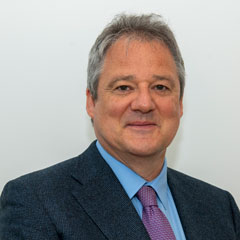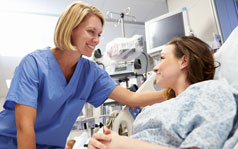Upper Gastrointestinal (GI) Surgery
Contact Us
Please note that a referral letter is required before an appointment can be confirmed.
Please note that a referral letter is required before an appointment can be confirmed.
Useful Information
About our services
The upper gastrointestinal tract includes the oesophagus, stomach and duodenum and the first part of the small intestine. At Mater Private Network we treat a range of upper GI conditions and as many of our surgical and medical team work across the Mater campus, we hold significant expertise in this sub-speciality.
- Barrett’s oesophagus
- Gastro-oesophageal reflux disease (GORD)
- Gastric ulcers/duodenal ulcers
- Benign gastric lesions including gastrointestinal stromal tumours (GIST)
- Eosinophilic oesophagitis
- Gastro-oesophageal motility disorders e.g., achalasia
- Gastric cancer
- Hiatal hernia (see general surgery for treatment of other types of hernias)
- Para-oesophageal hernias
Prior to treatment, a number of investigative steps are taken. This may include laboratory, radiologic, endoscopic and GI physiology tests or procedures. Fortunately, all of these can be undertaken on site.
Treatment may include lifestyle changes, medication and/or surgery. Minimally invasive procedures are used where possible when surgery is required, which provides the benefit of a quicker recovery, less pain, better healing and aesthetic and a shorter hospital stay.
- Laparoscopic Hellers myotomy – used to treat certain gastroesophageal motility disorders e.g achalasia
- Laparoscopic fundoplication – used to surgically treat GORD in patients with high volume severe reflux
- Laparoscopic wedge gastrectomy for benign lesions in stomach
- Subtotal or total gastrectomy - used to treat gastric cancer
- Repair of perforated ulcer
- Laparoscopic hiatal or para-oesophageal hernia repair
Our team
Our Mater Private Network surgeons have extensive expertise in the diagnosis, treatment and management of these conditions. They work as part of a wider team which may include diagnostic/interventional radiologists, gastroenterologists, oncologists, physiologists, pathologists, specialist nurses and other allied health professionals. Treatment is tailored for each patient.
Our consultants in Dublin
/mr.-john-conneely-.png?sfvrsn=7fc9d036_1)
/ms.-orla-mccormack-.jpg?sfvrsn=d091e898_1)
Our consultants in Cork
/mr.-tahir-khan-.png?sfvrsn=49bce4c5_1)
/prof.-michael-o-riordain-.png?sfvrsn=8cf777b6_1)








.jpg?sfvrsn=6a6f32bf_1)


